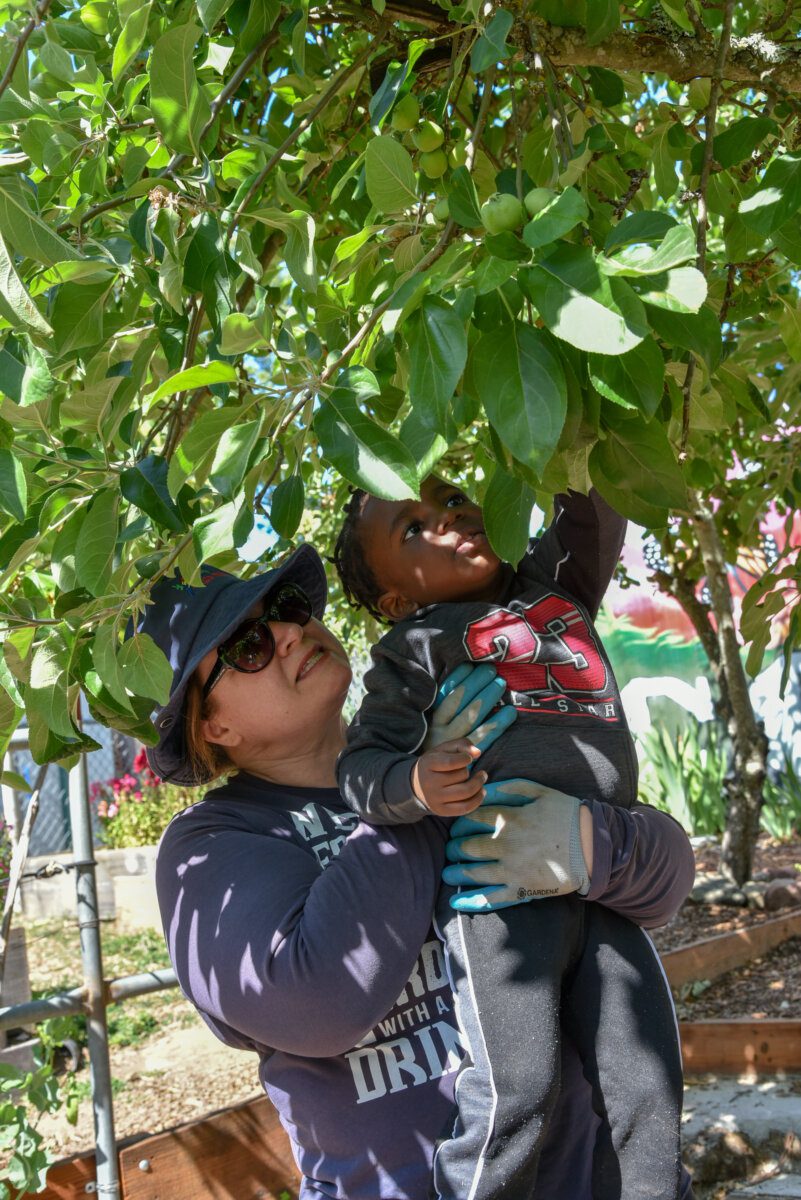Model for Good Food
Our organic garden offers a replicable and scalable model for creating a sustainable community resource for good, healthy food. The Production Farm has 15,000 square feet of land dedicated to orchards and organic crops. Last year, our Production Farm generated 1,099 lbs. of healthy fruits and vegetables!
We also ensure that the fresh ingredients grown in our Production Farm and school gardens are put back into our food cycle. Our farm ensures that we grow, educate, and feed good food into tomorrow! Our Appetite for Change program teaches families about planting and growing food through the lens of climate change and our Learning Gardens provide a place for children to learn about food, nutrition, cooking, gardening, agriculture, nature, and related topics.
Research shows that involving children in our farm and learning gardens or a school gardening program may do more than cultivate a green thumb. In one study, elementary school children showed increased willingness to try new foods after growing and cooking in a school-based kitchen and gardening program.
Advancing Equitable Climate Action
Community Action Marin is focused on expanding and strengthening its programming to tackle the intersection of food security, racial equity, and climate justice. Our Appetite for Change program is designed to address this by creating a replicable model to scale across urban green spaces in partnership with community groups. It will also connect people of low income back to land and provide a space to engage with the environment and food. This helps promote healthy eating and facilitates an end to the structural inequities that lead to unequal health outcomes. Urban green spaces and gardens also serve as a place for social connection, education, and leadership opportunities for community members, reinforcing people’s right to healthy and culturally appropriate food produced through ecologically sound and sustainable methods.
The program takes place over the course of six weeks, and was piloted in April and May, 2024. In the program, families share their cultural food practices and together learn how to grow fruits and vegetables and how to cook and use them in the meals they prepare. Sessions are held in Spanish with English translation provided if needed.
Frequently Asked Questions
We use the food we grow to prepare meals both for our programs, as well as in our emergency food boxes that provide groceries and meals to food insecure families.
We have a parent garden committee that help to both operate and make decisions about the campus gardens, including what is grown. Our farm manager is Juan Martinez, a long-time Community Action Marin employee.
We love having children involved. They learn how to grow things and are more likely to eat the foods they’ve been involved in growing.
This past year, our Production Farms grew 1,099 pounds of food including: Peaches: 88 pounds, Cabbage: 10 pounds, Peppers: 4 pounds; Tomatoes: 179 pounds, Cucumbers: 94 pounds, zucchini: 238.5 pounds, and more!
We love having people volunteer and help out. What we suggest is going to our Volunteer Page and filling out the form and our Volunteer Coordinator will get back to you. You can also sign up for our email list as events are often included in our emails as well.

Growing a Garden into a Production Farm!
A longtime highlight of our Children and Family Services, our Learning Gardens program is growing in exciting ways to increase healthy eating choices and access to fresh fruits and vegetables among the families we serve.
